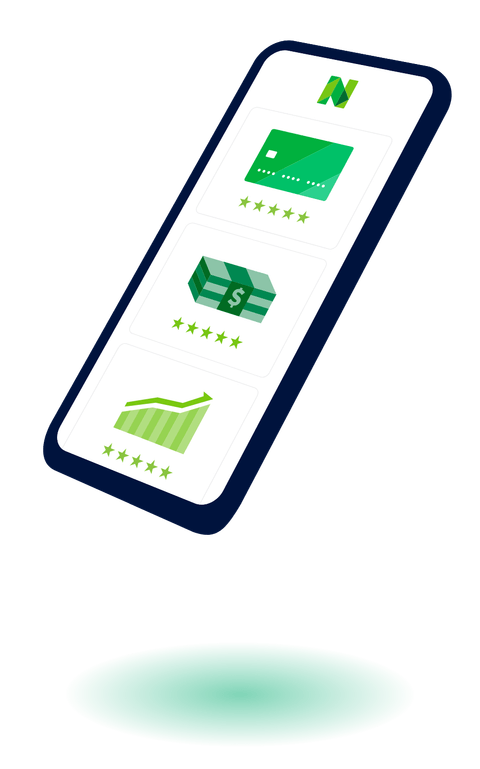How to Start an Import/Export Business in 6 Steps
Interested in how to start an import/export business? Get started with tips from a successful entrepreneur.

Many, or all, of the products featured on this page are from our advertising partners who compensate us when you take certain actions on our website or click to take an action on their website. However, this does not influence our evaluations. Our opinions are our own. Here is a list of our partners and here's how we make money.
For nearly as long as there’s been people, there’s been trade. Imports and exports are how the potato came to Ireland, and in a more modern sense, it's how we’re able to buy food, drinks, furniture, clothes, and nearly everything else, from all around the world today.
Imports are any good or service brought in from one country to another, while exports are goods and services produced in the home country for sale to other markets. Thus, whether you’re importing or exporting a product (or both) depends on your orientation to the transaction.
Smart money moves for your business
Grow your small business with tailored insights, recommendations, and expert content.

The modern system of international trade is a complex web of import/export businesses that handle the sale, distribution, and delivery of goods from one nation to another. If you're interested in starting a business in this industry, know that there is more than one type of import/export business. You could focus just on importing or just on exporting. You could be a manufacturer’s representative, specializing in a certain industry, or you could be an import/export merchant or agent, which is more of a freelance broker.
Starting an import/export business
If you’re interested in starting an import/export business, there are a ton of considerations you need to make — just as you would for any business. For an import/export business, specifically, it’s helpful to have a background in business, international relations, or global finance. This should give you an understanding of the myriad hoops one must jump through to sell or buy a product from an overseas supplier.
“The compliances make it so complex that even if you did know how to do it, you’re still going to have to keep in mind a lot of random considerations,” says Selena Cuffe, co-founder of Heritage Link Brands, a company that imports, exports, and produces wine, and other high-end products like tea and honey.
Cuffe worked for years in brand management for Procter & Gamble, among other trade-related positions, before starting her company in 2005. She was inspired after going to South Africa, where she attended the first Soweto Wine Festival.
Heritage Link Brands now operates within the wine industry in different ways: It imports wine from South Africa into the U.S. wine market, and it exports grapes from its own South African vineyard to the U.S. as well as the Philippines and Hong Kong. It also exports wine to airlines for use on international flights.
Keep reading for the steps you need to take to start an import/export business, as well as tips from Cuffe.
1. Get your business basics in order
Anyone starting a business in the 21st century needs to cover certain bases, like creating a website as well as social media channels like Facebook, Twitter, and a host of others.
So here's your first step: Get the basics in order. This means registering your business with the state in which your headquarters will be located, registering a domain name, getting any business licenses you need to legally operate, and so on.
You'll need a business plan, too. Part of that business plan needs to cover how to handle the rules and regulations of the markets you want to work in. For example, to bring alcohol and tobacco products into the U.S., you need an Alcohol and Tobacco Trade and Tax Bureau permit, which is free but can take months to acquire. Similar research needs to be done when doing business with other countries, taking into account everything from various legal back label requirements in each nation to insurance.
Perhaps most importantly, you need access to capital. Startup costs can vary greatly depending on the type of imports/exports business you start.
“The first thing I recommend for anyone is to have your capital upfront,” says Cuffe. “That’s so you can protect your business from not only a legal standpoint but also the equity of the brand that you create and to make sure you invest in the quality of whatever you launch. Test a market, or test a city, then a state, then a region. Then I think that there are greater chances for success and sustainability long term.”
The ratio that Cuffe cited for success in the wine industry — "In order to make $1 million, you need to invest $7 million” — demonstrates the kind of capital needed to start a business comfortably (if one can ever be “comfortable” as an entrepreneur) and be prepared for whatever occurs, from issues with sourcing to changes in trade regulations.
2. Pick a product to import or export
The next step in starting an import/export business is to find a product or industry you are passionate about and that you think could sell in international markets.
For Cuffe, that product turned out to be wine. She felt a connection to the product not just from a quality and taste standpoint but from a social justice standpoint as well.
“When I first entered the industry in 2005, there was just one Black winemaker and five Black-owned brands," she says. "Today there are 17 Black winemakers and 31 Black-owned brands.”
Though the South African wine industry still deals with injustices like poor working conditions and unequal access to capital, Cuffe says things have improved since the previous decade thanks to the increased sales and notoriety of South African wines worldwide.
“The biggest thing that we’ve enabled is the financing of Black businesses. When we first got started, in order for even these brands to create their own wine, they had to source it from existing white wineries, because they didn’t own any land,” Cuffe says.
Once you find your product, you also need to identify the right market for it. After all, you need someone to sell it to. This is where your trend-spotting skills come into play. The best products for an import/export business are products that are just starting to become popular, or show some promise to being so in the future.
You can conduct research with resources like GlobalEDGE’s Market Potential Index or by checking with local government officials and websites, such as the Department of Commerce International Trade Administration’s Data and Analysis. You can also find reports on the state of the imports/exports industry with the Census Bureau Foreign Trade.
“Test your ideas,” says Cuffe. “Don’t assume that what you think will sell because you love it will catch fire in the market. What catches fire in the market is more than just the way it tastes — it’s who you know, and the packaging and serendipity of timing, and all of the indirect soft stuff that makes the difference.”
3. Source your suppliers
Once you have a product you’d like to trade internationally, you need to find a local manufacturer or other producer that makes your product and can lead to a strong partnership. A good relationship with a supplier is crucial to long-running success in an imports/exports business.
Generally, you can find suppliers through companies like Alibaba, Global Sources, and Thomas Register. You will need to convince the supplier of the benefits of entering the U.S. market (or another market you wish to sell to), and figure out the logistics of taking their product from their local warehouse or production facility to another one, potentially on the other side of the globe.
“We own an interest in a vineyard in South Africa called Silkbush," she says. "My orientation when I do business to them is, 80% of the grapes that we pick we send off to domestic wineries who use our grapes to produce their own proprietary high-end wine. The remaining 20% is used to create our proprietary label Silkbush, which we export to foreign markets.”
4. Price your product
You know what product you want to work with and you've identified your target market. Next up, figuring out how much to charge.
Typically, the business model on an imports/exports business includes two key understandings: the volume of units sold, and the commission made on that volume.
Be sure to price your product such that your markup on the product (what ends up being your commission) doesn't exceed what a customer is willing to pay. But you don't want to make it too low such that you aren't ever going to make a profit.
In the imports/exports industry, importers and exporters typically take 10% to 15% markup above what the manufacturer charges you when you buy the raw product.
5. Find your customers
Next up on how to start an imports/exports business? Finding customers to sell to.
Deciding on a market is not the same as finding your customers. You can’t just send your products to the Port of New York and start selling your wares on the docks to whoever walks by. You usually need to find distributors and clients who will take on your product and sell to others.
If you have a quality website that includes digital marketing campaigns, your customers may end up finding you. But to get started, Cuffe suggests doing things the old-fashioned way — by cold-calling. Check with any local contacts you have in the area, contact the area's Chamber of Commerce, trade consulates, embassies, and so on. These entities might be able to give you a local contact list that could be a vital help in starting a imports/exports business.
“I cold-called the local Cambridge, Massachusetts, Whole Foods store, and they gave me a chance. And now we do display programs and regional programs with Whole Foods,” says Cuffe. “A lot of what I did in the beginning and even today involves cold calls.”
6. Get the logistics down
Perhaps the most complex aspect of importing and exporting is the logistics of taking a product created somewhere and selling it somewhere else. How does the product make the trip from the vineyard of South Africa to the wine glasses of drinkers in California, for example?
“When you are operating within a supply chain where your customer is different than your client, which is different than your consumer, it requires an extraordinary amount of coordination,” says Cuffe. “I use a freight forwarder that on my behalf reaches out to shipping lines, like Maersk.”
Hiring a global freight forwarder is generally a good idea for all imports/exports businesses, as they'll serve as a transport agent for moving cargo — saving you a lot of time and worry about getting your products from the factory to a warehouse. Essentially, you'll give them information about your business and your intentions for the product, and they'll arrange the shipping agreements, insurance, and oftentimes the licenses, permits, tariffs, and quotas of working within another country. This can remove a lot of the headache associated with starting an imports/exports business in an international trade market.
Frequently asked questions
Is an import/export business profitable?
Many import/export businesses are very profitable. To improve your company's chances of profitability, it's important to conduct the required research on your industry and have a well-documented business plan. Understanding all of the costs associated with an imports/exports business and determining your profit margins when pricing your products is also essential.
How do import/export companies make money?
As an import/export company, you'll make a profit by selling products at a higher rate than you paid for them from the vendor or source.
What is an export license?
An export license is a government-issued document authorizing your company to complete certain export transactions. An export license is issued by the appropriate agency once the export transaction has been reviewed.
What documents do I need to import goods?
The types of documents you'll need to import goods will vary depending on the country you're importing the product into. In the United States, import licenses and permits may be required, but a Customs and Border Protection entry form is always required.
The bottom line
The world of importing and exporting is a dazzling, complex system that balances both emotional and economic needs. If we want something that is grown or produced in another part of the world, how can we get our hands on it? How can we give others the opportunity to enjoy it, while still creating a sustainable lifestyle for those producing it and for those who transport it from point A to B?
If you’re interested in answering these questions, don’t let the enormity of the task overwhelm you. With the proper research, planning, and documentation, you can launch a successful imports/exports business of your own.
Article sources
NerdWallet writers are subject matter authorities who use primary,
trustworthy sources to inform their work, including peer-reviewed
studies, government websites, academic research and interviews with
industry experts. All content is fact-checked for accuracy, timeliness
and relevance. You can learn more about NerdWallet's high
standards for journalism by reading our
editorial guidelines.
Related articles







